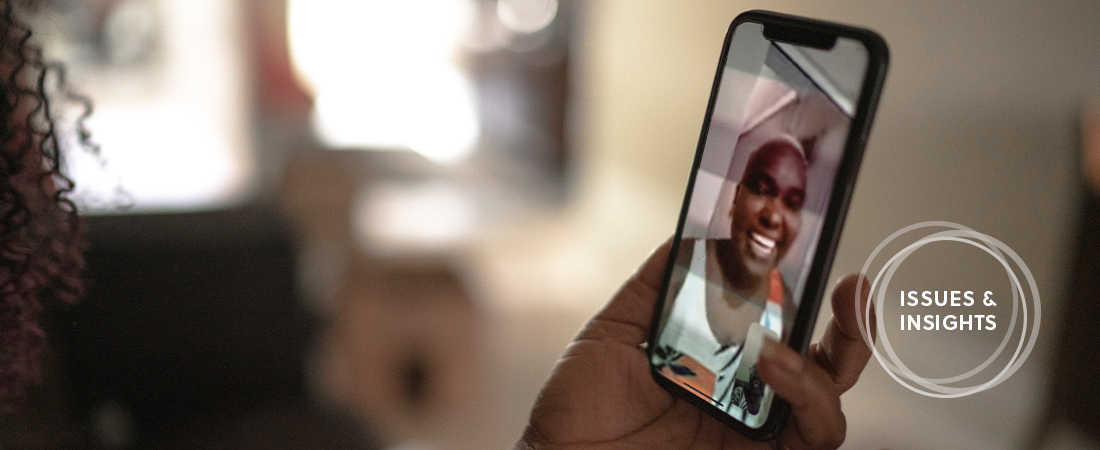Preventing Suicide in the Midst of COVID-19

As the COVID-19 pandemic continues to have a global impact, widespread concern has arisen about the short- and long-term mental health toll that social distancing, job loss, and trauma associated with the health emergency could have.
To coordinate mental health and suicide prevention efforts during this uncertain time, the National Action Alliance for Suicide Prevention (Action Alliance) launched the Mental Health & Suicide Prevention National Response to COVID-19. In this interview, Action Alliance’s Kim Torguson discusses this new effort.
Q: Has COVID-19 led to a spike in suicides, as many people have feared?
Torguson: We don’t know definitively how this pandemic might impact suicide rates in the U.S. There’s no data on that yet. We do know that risk factors for suicide include isolation, financial strain, increased substance use, and physical health issues—all factors being experienced by the public. We also know that nearly half of Americans say that this pandemic has had a major impact on their mental health, as evidenced by recent studies from Gallup and the Kaiser Family Foundation.
Q. What prompted the Action Alliance to take on launching the National Response?
Torguson: During the past few weeks, a lot of our partners began asking, “What’s being done to address the mental health and emotional trauma of the virus at the national level?” We know no one group can take on this complex work, and coordination is key. Given our role as the nation’s public-private partnership, and our connections to more than 250 national partners, we knew we were uniquely positioned to take on this work. We felt a responsibility to do it, too.
Q: What will the National Response to COVID-19 do?
Torguson: By mobilizing a single, coordinated national mental health and suicide prevention response effort, we hope to mitigate the potential impact of this pandemic. Through this National Response, we brought together some of the nation’s best and brightest, like leadership at EDC, to ensure mental health and suicide prevention are effectively addressed.
The work of the National Response will focus initially on four key areas: messaging, crisis care, suicide care, and policy.
Q. Why is messaging one of the key focus areas of the National Response?
Torguson: The way we talk about mental health and suicide can have an impact on behavior and prevention efforts. The messaging before the pandemic as it relates to mental health and suicide has been, “if you need help, get help.” But that’s a tough message now with health care systems being overburdened, and many of the frontline medical professionals, such as clinicians and nurses, feeling overwhelmed and experiencing emotional distress of their own. Promoting hope, help, and resiliency now is really critical to making sure everybody, including those on the frontlines, gets the support they need.
Q. What outcome are you hoping the National Response will achieve?
Torguson: We want to achieve a stronger mental health and suicide prevention system than we did before the pandemic started. Additionally, we want a national dialogue where people are much more openly and compassionately talking about mental health and suicide prevention. We want a country where our health care systems know how to provide safer, more effective suicide care, and where our law enforcement are equipped to help somebody who might be in crisis. We want health policies that embrace technology and offer reimbursements for services, such as telehealth. Overall, we want to strengthen our communities and build resiliency. And we think it’s achievable but only through coordinated efforts—like the National Response.
Q: What are some things that anybody can do to support suicide prevention now?
Torguson: We are all physically distancing now, but that doesn’t mean we have to be socially distancing. Staying connected to family, friends, colleagues, and loved ones during this difficult time can be very helpful. I would highly encourage everyone to reach out, whether by phone, video, Skype, or text, and to ask a friend or a loved one how they are doing. We need to promote connectedness now more than ever. Asking questions like, “Are you struggling?” or “Are you thinking about suicide?” can open the door for a caring conversation about how someone might be hurting and how you might be able to help.
I also encourage people to utilize existing initiatives that can help them start those caring discussions. The National Suicide Prevention Lifeline’s #Bethe1to campaign helps people start conversations with friends and loved ones who may be struggling with thoughts of suicide. Also, the #BeThere campaign is another national resource that provides concrete examples of how you can support a veteran or service member who is feeling isolated and lonely. These caring connections can make such a difference.
If You or Someone You Know is in Suicidal Crisis
- Call the National Suicide Prevention Lifeline at 1-800-273-TALK (1-800-273-8255)
- Visit www.suicidepreventionlifeline.org
